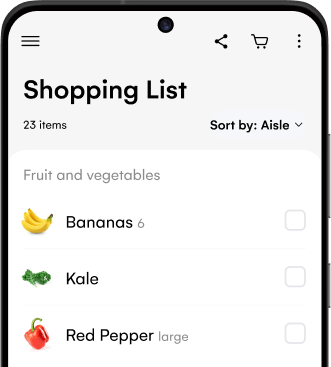Estimated reading time: 7 minutes
Fitness is a process and a journey. Your decisions influence who you are today and impact your future self. Reflecting on life and feeling proud of how you steer things is empowering. You hold the key to your exercise longevity. You and only you can control the habits you build around exercise. Just like your role in human relationships, you have the power to build a healthy and lasting relationship with exercise.
Analyse nutritional information for any recipe

Motivation rises and falls, and life happens. But when you treat exercise as an integral and non-negotiable element of your life, you open yourself to optimum health and fitness.

Why is it essential to build a healthy relationship with exercise?
Science tells us that people who exercise regularly and consistently are more likely to benefit from good physical and mental health in old age. But forcing yourself into exercise you hate or seeing it as something you do to punish yourself for overeating or indulging can create a negative association with exercise. If you want to create a life where exercise is something as routine as brushing your teeth, it’s important to approach it as a long term lifestyle change, not just a quick fix.
It’s not just consistency that contributes to a healthy relationship with exercise. The ability to listen to your body and meet its needs is vital. What happens when your body screams for rest or fuel, and you ignore it? It shuts down!
There’s a fine line between building a healthy exercise habit and creating a behavioral addiction. Addictive behavior occurs when the habit does more harm than good—for instance, exercising through injury.
If you focus on building a manageable exercise habit that enhances your life but does not consume it, you’ll reap both the physical and mental benefits of exercise in a sustained way.
What are those benefits? They’re numerous, but a few include:.
- Reduced risk of mortality.
- Reduced risk of disease.
- Enhanced confidence and self-esteem.
- Improved mood
The power of habit
It’s that time of the year when people are thinking about new year’s resolutions. While good intentions around health and well-being are admirable, nearly half of these fail.
Habit-building is about turning a conscious action into an automatic and non-negotiable aspect of your week. It starts as something that takes effort and sometimes persuasion and develops into a regular and integral part of your life. Like we mentioned earlier – you don’t need to be motivated to brush your teeth. It simply happens as part of your day because it’s an ingrained habit.
Building positive habits to produce a healthy and lasting relationship with exercise requires rewiring the brain through neuroplasticity. Typically, there are 4 stages of habit-building:
- Cue.
- Craving.
- Response.
- Reward.

Let’s take exercise as an example. If you’re building a positive habit, the cue might be a low mood. What do you crave? A change in your mood or something to distract you. The response would be you going to the gym or hitting the streets for a walk. And the reward? Those feel-good endorphins that exercise gives you. Once repeated enough times, this becomes a habit and helps build a healthy, lasting relationship with exercise.
This habit can deteriorate if you are not careful. Your brain still feels rewarded if you respond to the low mood by scrolling on social media or eating sugary foods instead of exercising. But this perpetuates an unhealthy response to the cues. This is known as negative habit building, rather than positive.
Three ways to build a healthy, lasting relationship with exercise
The most successful athletes are those who passionately love their chosen sport and listen to their bodies and honor their own needs. They view exercise as a journey as opposed to a destination. But even if you have no desire to be an athlete, enjoying your exercise journey is important if you’re going to see it out.
If you are ready to benefit from a healthy and lasting relationship with exercise, here are 3 tips to get you started.
1. Find your discipline
Find an exercise that you love! If your exercise routine feels like a chore, it’s time to explore other options.
If you don’t love what you do, you will find excuses not to do it. And you know that avoiding exercising will certainly not help you build a healthy and lasting relationship with it.
Find something that excites and invigorates you and causes you to look forward to it rather than dread it.
Maybe you don’t chime with running, that’s ok. Why not go and try out your local spin class? Or do something totally different like rock climbing or salsa dancing?
Remember to give it a good chance, though. Most avid runners didn’t fall head over heels in love with running on their first few adventures. Give an exercise enough time to establish whether it speaks to your heart.
If you fall in love with your chosen exercise discipline, it will be easy and natural to incorporate it into your daily life.
Of course, that doesn’t mean you won’t have days where you just don’t feel like it. But if you genuinely enjoy your exercise most of the time, you’ll be more likely to carve out a slot for it during your day.
Get inspired and connect with other home cooks like you

2. Be self-aware
Beware of mindless enthusiasm. This type of enthusiasm is where you are so gung-ho that you forget to listen to your body and ignore experts’ sensible advice. This oversight can lead to fatigue and exhaustion. Plus, it may cause you to fuel inadequately and ultimately cause injury.
No one likes sitting on the substitute bench, but you may crash and burn if you don’t tune in to yourself and develop self-awareness.
Be an ambassador for yourself. This role means you need to focus on yourself and not allow others to distract you or compare yourself to others. Remember, everyone is different. Your friend may be able to push their body harder than you can. Don’t try and keep up with them. You’re walking your own path! Knowing when to rest and when to exert yourself takes excellent self-awareness.
Listen to your body and optimize your exercise habits to feel fit, strong, and healthy.
3. Make your exercise time a priority
However you build your habits and schedule your time; always make time for your exercise. You can swap in a HIIT session if you only have 20 minutes and don’t have time to go to the gym. Or you can walk to work instead of taking the bus if you know you won’t fit in your usual spin session.
When you make exercise a priority, your friends and family learn to respect this and factor it in.
If you remain open and flexible, you can find an opportunity to exercise. Finding a balance between a healthy social life and honoring your exercise routine doesn’t need to cause stress. If you are away for the weekend with friends and you usually go swimming training every day, could you get up early and go for a morning run instead? This way, you can exercise while traveling or on vacation.
Of course, there will be times when you have understandable reasons for not exercising, such as illness, injury, or life emergencies. Or even rest periods or times where making memories and being with people is simply more important. That’s fine too – but it isn’t habitual. Learn to discern between a reason and an excuse.

Embrace your relationship with exercise
If you have good intentions to stay fit and healthy, don’t let external factors prevent this. You hold the key to your success in building a healthy and lasting relationship with exercise. And you are the one who will benefit from the positives associated with this.
First, find an exercise you love and build a healthy routine around it. Remember to tune into the messages from your body and protect your precious exercise time.
Words by Ali Hall


